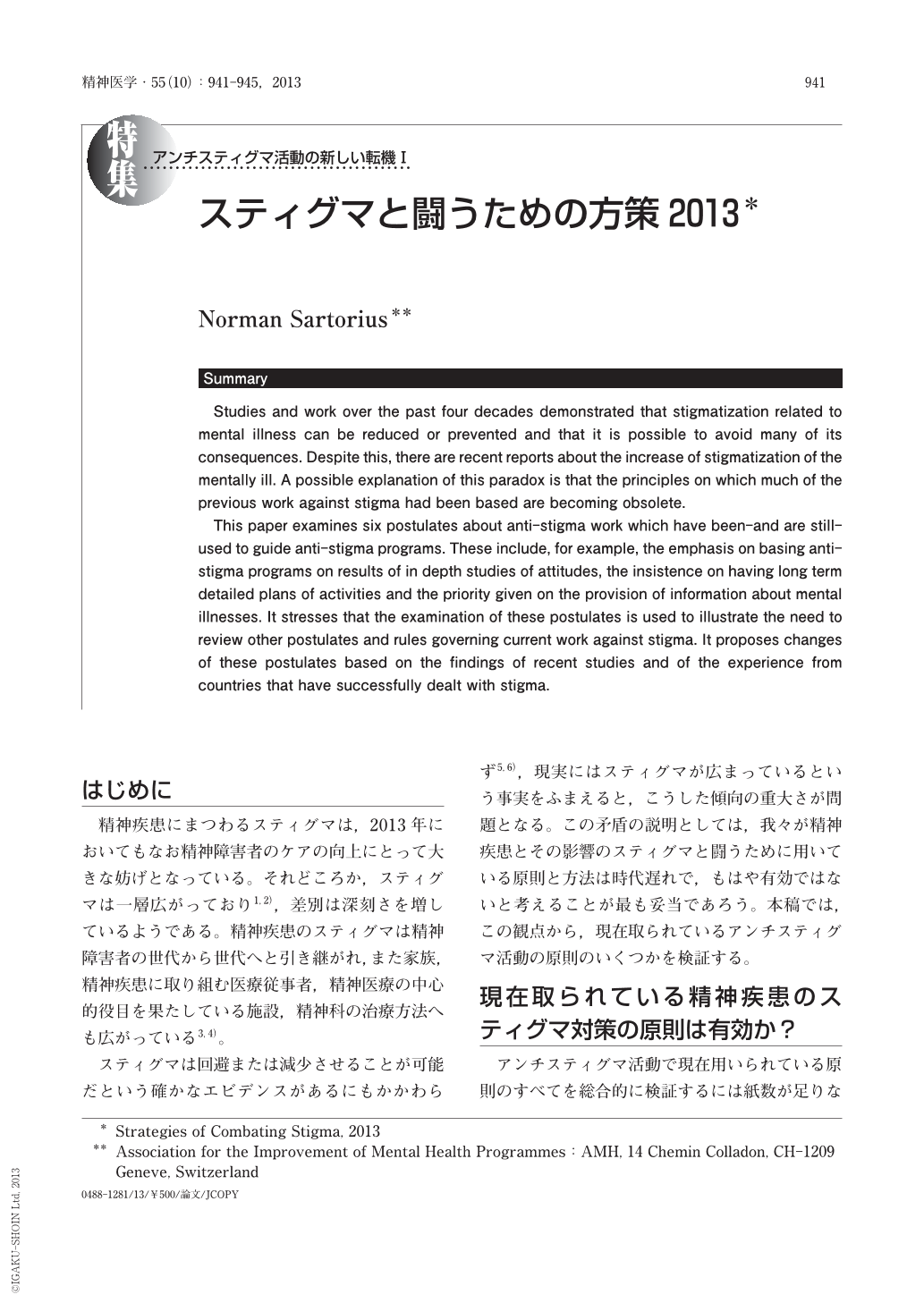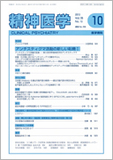Japanese
English
- 有料閲覧
- Abstract 文献概要
- 1ページ目 Look Inside
- 参考文献 Reference
はじめに
精神疾患にまつわるスティグマは,2013年においてもなお精神障害者のケアの向上にとって大きな妨げとなっている。それどころか,スティグマは一層広がっており1,2),差別は深刻さを増しているようである。精神疾患のスティグマは精神障害者の世代から世代へと引き継がれ,また家族,精神疾患に取り組む医療従事者,精神医療の中心的役目を果たしている施設,精神科の治療方法へも広がっている3,4)。
スティグマは回避または減少させることが可能だという確かなエビデンスがあるにもかかわらず5,6),現実にはスティグマが広まっているという事実をふまえると,こうした傾向の重大さが問題となる。この矛盾の説明としては,我々が精神疾患とその影響のスティグマと闘うために用いている原則と方法は時代遅れで,もはや有効ではないと考えることが最も妥当であろう。本稿では,この観点から,現在取られているアンチスティグマ活動の原則のいくつかを検証する。
Summary
Studies and work over the past four decades demonstrated that stigmatization related to mental illness can be reduced or prevented and that it is possible to avoid many of its consequences. Despite this, there are recent reports about the increase of stigmatization of the mentally ill. A possible explanation of this paradox is that the principles on which much of the previous work against stigma had been based are becoming obsolete.
This paper examines six postulates about anti-stigma work which have been-and are still-used to guide anti-stigma programs. These include, for example, the emphasis on basing anti-stigma programs on results of in depth studies of attitudes, the insistence on having long term detailed plans of activities and the priority given on the provision of information about mental illnesses. It stresses that the examination of these postulates is used to illustrate the need to review other postulates and rules governing current work against stigma. It proposes changes of these postulates based on the findings of recent studies and of the experience from countries that have successfully dealt with stigma.

Copyright © 2013, Igaku-Shoin Ltd. All rights reserved.


